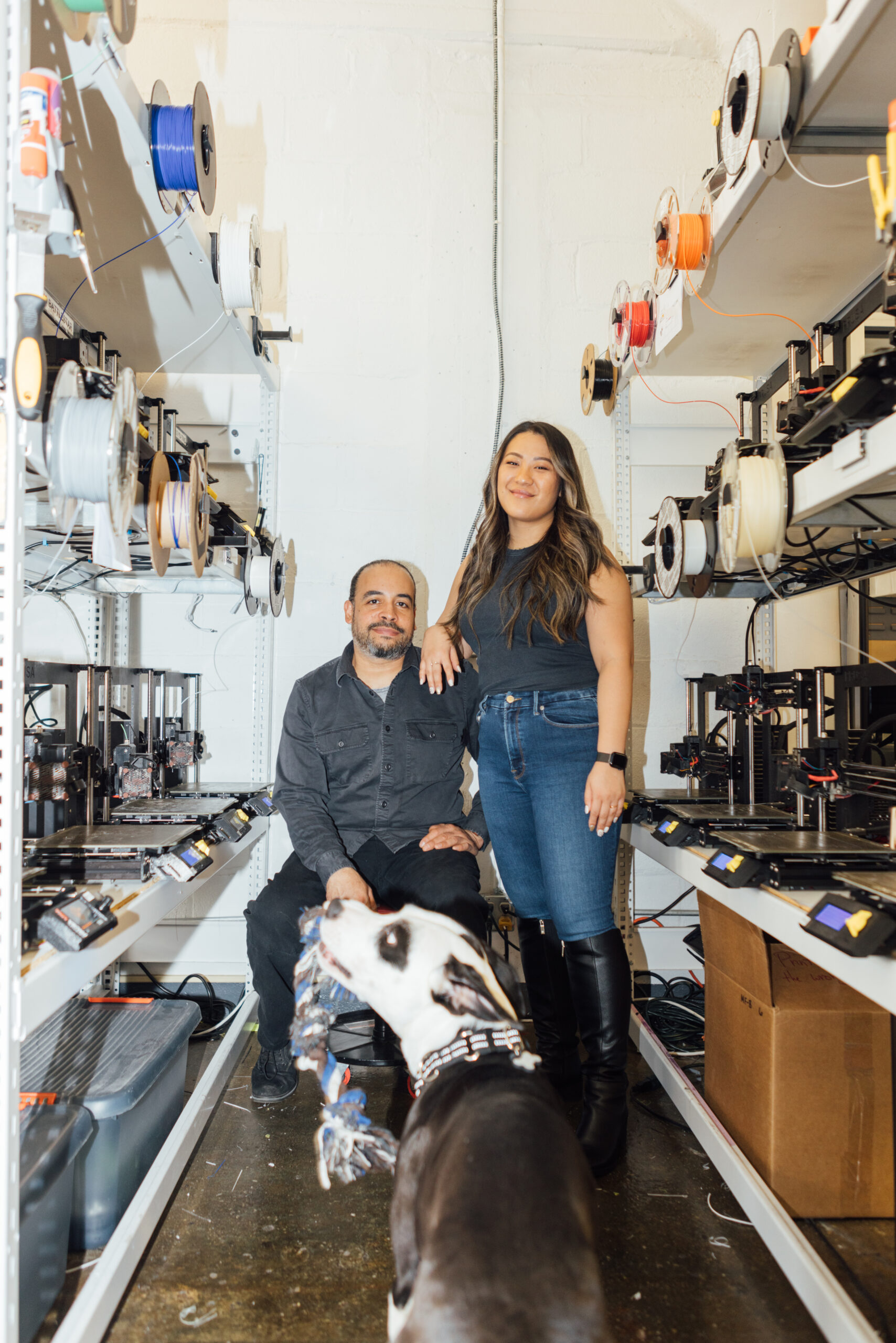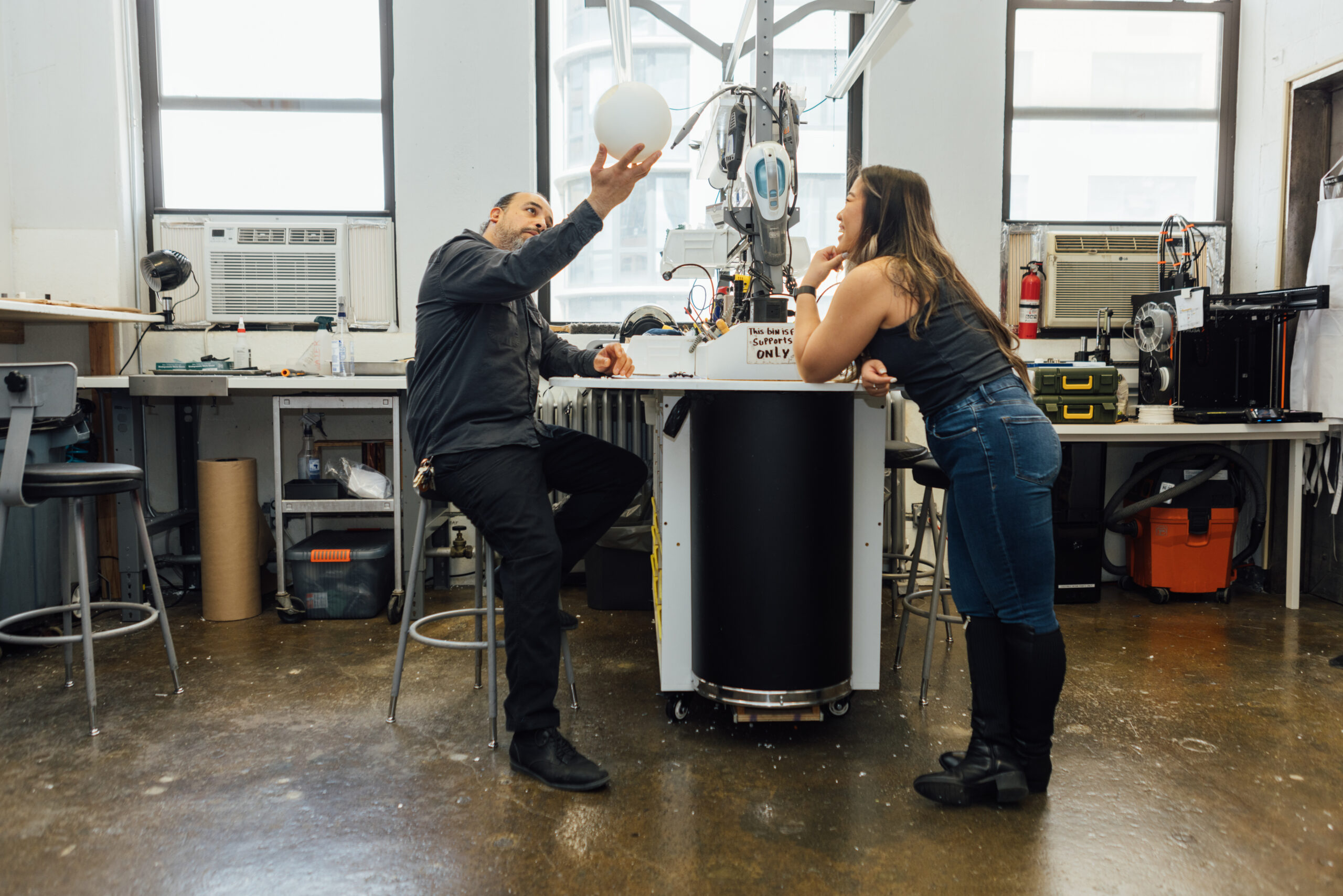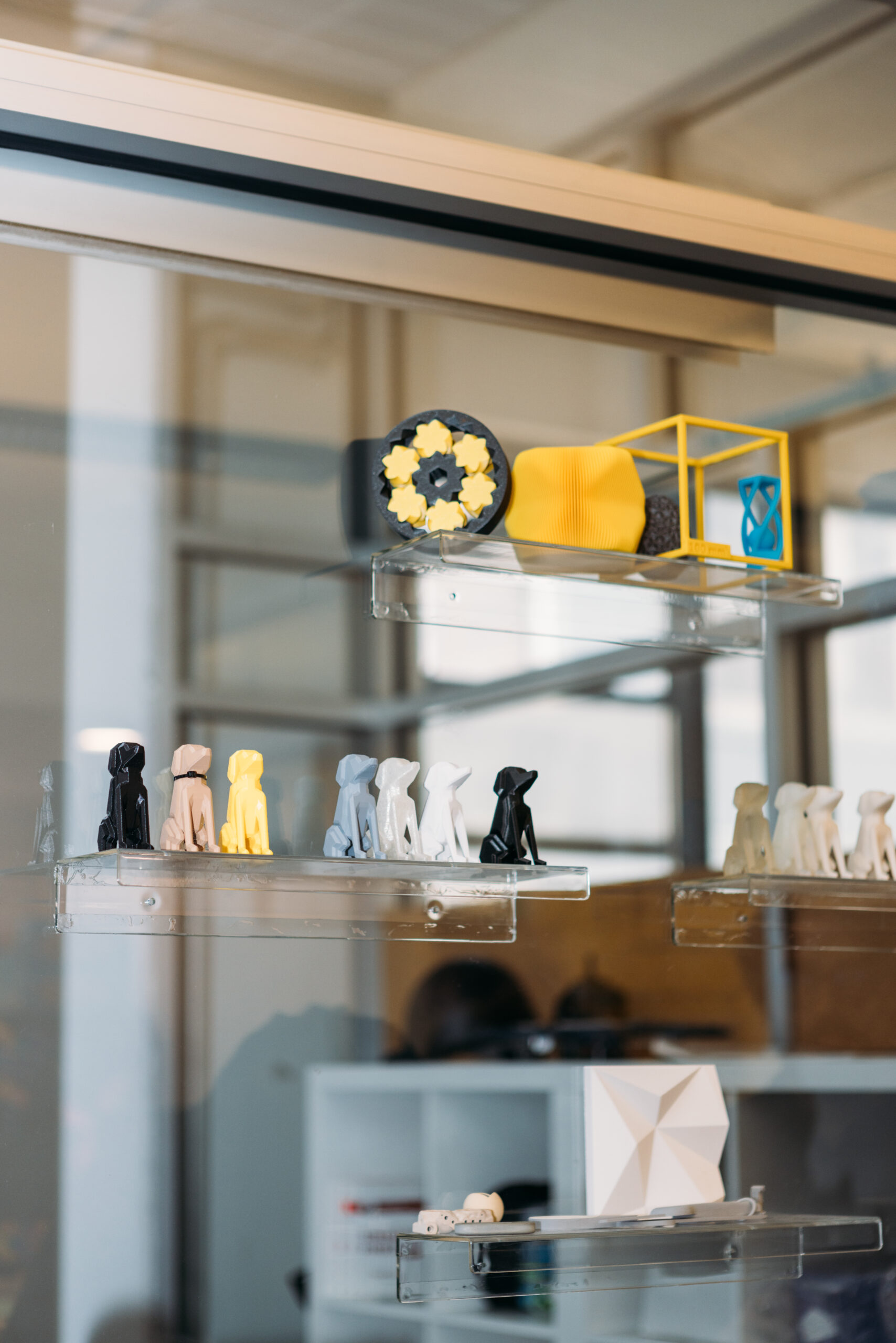Christina Perla and Manny Mota met in the industrial design woodshop at Pratt, where their shared approach to problems forged an easy bond, both personally and creatively. Fast-forward several years, and that synchronicity opened up a transformational opportunity. When a friend asked the couple if they’d be interested in taking over their small 3D-printing company, they saw a chance to put their combined and complementary skills to work, to scale up and make “a well-oiled machine for customers,” as Manny puts it. Today, that business, Makelab, has grown into a multimodal operation, with a team of creatives in Brooklyn and San Francisco. Last spring, they emailed with Prattfolio and spoke with us in their Brooklyn office about leading a growing business with their balanced creative and business instincts.
The following Q&A has been edited and condensed.

How did you discover your shared creative sensibilities?
Manny Mota: I was a very systems-minded person. I adhered to the philosophy of “measure twice, cut once.” Christina thought the same exact way. It felt very easy, very organic, working together. And that’s hard to find.
Christina Perla: They always say that the best business partnerships happen when you have a complementary set of skills, not the same set of skills. We both went to Pratt, both ID [Industrial Design], but we do have very different skills, and so it works really well. As we’re scaling this company, we don’t step on each other’s toes.
The way I like to put it is, we’re on the same highway, going the same direction, different lanes, and we’re going the same speed. We always make sure we’re going the same speed.
Tell us about your roles in your company and how you work together.
MM: I’m the CIO-COO. I stay close to the operations and am always thinking of ways to make them better. We work together in the strategy of the business; we meet every week to discuss it.
CP: I’m the CEO, so I do a lot of everything, as everyone does in a startup. I handle a lot of the marketing, strategy, digital operations, and admin. I also oversee all the finances.
We spot the same opportunities, but the way we go about it is very different. I’m very . . . how would you describe it?
MM: You’re very outgoing.
CP: I can be very extroverted.
MM: I’m a bit of the opposite. I’m more of an introvert. She’s the face of the company as well, which I don’t mind at all. She does a great job.
CP: Please! But people know you.
MM: But I am the geek who likes to get deep into the tech and where we need to go next, what we need to implement. I get a lot of feedback from the team as to what’s working and what’s not. And I like to solve problems, physical problems, so that the workflow is always top-notch.
CP: Manny’s the guy that brings the newness to this company and keeps us fresh.
MM: I’m also way ahead. Like, I’m on Mars. I’m thinking, What do we do to get things on Mars? And she grounds me.
How do you bolster each other through difficult times?
CP & MM: In our first year of business, we lost a big client in the middle of a project, which happens more often than most want to talk about. At that time, we were freaking out. We had to triple the size of the business or let go of it altogether.
We put it all on the table and decided to let go of many things that were distractions from the most profitable and scalable aspects of the business. When we acquired the business, we had an Etsy store—we let go of that. Because of the big client, we were doing heavy design work and had set up a finishing shop and were offering finishing services—we let go of all of that.
We decided to hunker down and focus on just the 3D printing. We eventually added and layered in more, but at that moment, it was a back-to-the-drawing-board situation and we laid it all out, together.

What are you doing now?
CP: So the biggest project is San Francisco, officially opening around Memorial Day. We are going to be building a factory outside of New York City. So we’re going to scale this quite a bit. We’re going to get more machines, get more efficient, better systems—
MM: More technologies.
CP: More technologies, bigger machines, different machines, more of this.
Essentially—it’s crazy—in this span of 12 to 18 months, we’re going to go from one city, one location, to two or three different time zones.
That’s really intense.
MM: But we’ve been planning this for a long time. It’s just, we don’t like to get ahead of ourselves. We don’t like to be ahead of the technology itself.
We’ve seen what happens when people try to get ahead of stuff. It just doesn’t work—you are kind of overpromising on things and not delivering because of the reality of what technology can accomplish. And that’s crucial. If you’re working on a project or a product and you get false information, it just derails everything for you.
We like to curb expectations and keep it real. So that means moving a little slower. But by doing so, we create a better foundation for the business itself.
CP: We care about this and are passionate about this too much to let that happen. We really wanted to build [Makelab] in a way that makes this a long-lasting business.![]()
Photos by Dahlia Dandashi, at Makelab in Brooklyn


